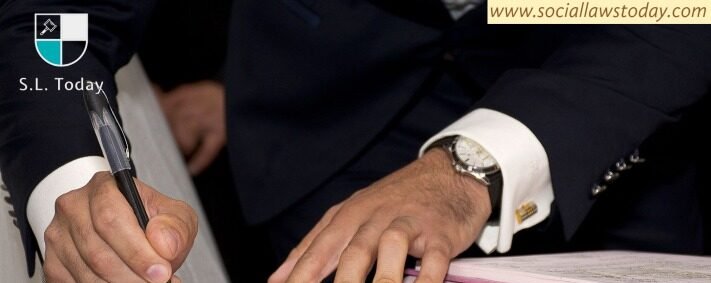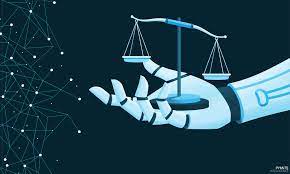CONCEPT OF INSIDER TRADING
When any person who is connected with the company buys/sells the securities of the company on the basis of unpublished price-sensitive information known to him and with the purpose of private gain, it’s called insider trading. Price-sensitive information may relate to the future plans, policies, programmers, or financial results of the company which is likely to influence prices at the stock market.
There are three main dimensions of insider trading :
(I) Someone connected with a company has access to important insider information which is not known to outsiders.
(II) The person buys or sells the company’s stock on the basis of such information.
(III) The person, thereby, uses the inside information for personal financial gain at the expense of the company’s business and to the disadvantage of the outsiders.
EXAMPLE OF INSIDER TRADING (HLL-BBLIL MERGER)
The charges against HLL with regard to its merger with Brooke Bond Lipton India Ltd. and legal controversy surrounding these charges.
- HLL’s purchase of 8 lakh shares of BBLIL two weeks prior to the public announcement of the merger of the two companies (HLL and BBLIL).
- SEBI, suspecting insider trading, conducted inquiries,
- According to SEBI, both HLL and BBLIL were under the same management and the merger plan was price-sensitive information.
- SEBI issued a show-cause notice to the Chairman, all Executive Directors, the Company Secretary and the then Chairman of HLL.
- SEBI passed an order charging HLL with insider trading.
- SEBI directed HLL to pay UTI compensation, and also initiated criminal proceedings against the five common directors of HLL and BBLIL.
- HLL filed an appeal with the appellate authority, which ruled in its favor.
DISADVANTAGES
- •Stockbrokers, informers and frauds manipulate the security markets by leaking information.
- •Spread out rumor about a insider transaction. Enhance the risk for stock market crash. Leads to a decrease in the overall trust in the market.
- The insider should be prohibited from dealing in the markets with unsuspecting investors because he/she has an unfair advantage knowledge. If the insider uses the confidential information for personal gains, he or she would be misappropriating a public good for private gain. This is called the misappropriation theory.
IS INSIDER TRADING UNETHICAL AND ILLEGAL?
- Insider trading is unethical due to two reasons ; Insider trading is against the principle of a fair market. The insider who has access to inside information is in an advantageous position in comparison to other investors. Therefore, he is in a position to exploit the stock market for his personal gain.
- Insider trading is also unethical because it involves a breach of trust. Directors, officers, bankers, and other persons having access to significant internal information are not expected to misuse it for their personal benefit or to divulge such information to their relatives and friends.
Insider trading is an illegal act in almost all countries.
Security Exchange Commission (SEC) in the USA had declared it illegal.
Security and Exchange Board of India (SEBI) has issued regulations that prohibit insider trading.
STEPS THAT CAN BE TAKEN TO STOP INSIDER TRADING ARE GIVEN BELOW :
1. Punishment: Anybody found guilty of insider trading may be punished by way of suspensions, dismissal and other suitable actions
2. Surveillance: The activities of insiders may be monitored with the help of spices and-or electronic gadgets like close circuit cameras. Such surveillance may serve as a check on insider trading.
3. Phone Tapping: The telephones of persons likely to indulge in insider trading may be tapped. Records of their telephone talks will serve as legal evidence. The knowledge that their telephones are being tapped is likely to serve as a deterrent.
4. Denying Access: Companies may ensure that the persons who are likely to undertake insider trading do not gain access to price-sensitive information. Whenever necessary vital documents, files and minutes may be kept under the charge of responsible executives. Such executives may be made accountable for any leakage of vital information.
RAKESH AGARWAL vs. SEBI
•One of the most famous case highlighting the vulnerability of the SEBI’s 1992 regulations
•Rakesh Agarwal, MD of ABS Industries Ltd was involved in negotiations with Bayer A.G, regarding their intention to takeover ABS.
•As per SEBI, Rakesh Agarwal had access to the Unpublished price-sensitive information. SEBI alleged that prior to the announcement of the acquisition, Rakesh Agarwal, through his brother-in-law, had purchased shares of ABS and tendered the said shares in the open offer made by Bayer.
•Rakesh Agarwal contended that he did this in the interests of the company.
•Pursuant to Bayer’s condition to acquire at least 51% shares of ABS, he, through his brother-in-law bought the shares and later sold them to Bayer.
•The SEBI directed Rakesh Agarwal to “deposit Rs 34,00,000 with Investor Education & Protection Funds of Stock Exchange, Mumbai, and NSE.
•SAT held that the SEBI order directing Agarwal to pay Rs 34 lakh couldn’t be sustained, on the grounds that Rakesh Agarwal did that in the interests of the company.
![]()




Leave feedback about this